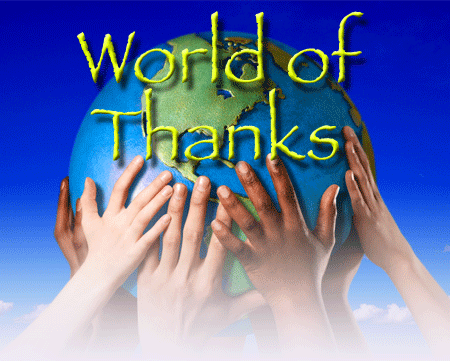
Friday, April 18













|
Home > Leadership in the Real World Blog | |
|
Notes, links, and inspiration about topics related to personal and leadership development. |
|
|
| |
"Punish Inaction"I've become a major fan of Dev Patnaik's book Wired to Care: How Companies Prosper When They Create Widespread Empathy I'm looking forward to interviewing Dev tomorrow for an upcoming People and Projects Podcast episode.Don't wait for the interview--get the book now and start reading. While prepping for the interview I came across what I expect to be my favorite quote for this entire month, from a recent article Dev wrote for BusinessWeek. The quote is credited to Stanford University engineering professor Jim Adams who said, "Good companies reward success, punish failure, and ignore inaction. Great companies reward success and failure and punish inaction." This hits on a common theme in both my interview with Michael Roberto about his book Know What You Don't Know: How Great Leaders Prevent Problems Before They Happen and in my discussion with Ralph Heath, author of Celebrating Failure: The Power of Taking Risks, Making Mistakes and Thinking Big: we too often seek first to punish failure instead of learn from it. Yet the even greater wisdom of the quote has to do with how we deal with inaction. You be the judge. How have you seen inaction most often handled? Tolerated? Expected? Ignored? Seriously. How many times have you said, "I thought of that years ago!" as someone makes money off an idea you had in the shower but went down the drain because you didn't take action. "Punish inaction." Do you want to excel at delivering projects and leading teams? Take those strong words to heart today. And don't just consider the inaction of those on your teams and the stakeholders you work with. You and I both need to look in the mirror to consider the inaction that has been holding us back. Do you want to make big things happen this year? Reward success. Enthusiastically learn from mistakes. And develop a disdain for inaction. P.S. Have you still not taken action on getting a copy of Dev's book? :) Labels: accountability, Books I Love, executives, innovation, learning, managing stakeholders, mistakes, podcast, project management, teambuilding, teams
| |
Be a Guest on my Podcast! Tell me: What Are You Thankful For?
IMPORTANT: If you want the e-learning license, make sure to leave your e-mail address in the message as well. We will edit out the e-mail address so it doesn't show up in the podcast but will use it to give you the free access to the e-learning. Labels: appreciation, podcast, World of Thanks
| |
"Ignorance keeps you perky"Earlier this year Peggy Noonan wrote an article about President Obama's new term: "Every new president starts out fresh, in part because he doesn't know what he doesn't know. Ignorance keeps you perky."The months since have shown that running a government is more challenging than running a campaign. Though you and I are not seeking to be the leader of the free world, Noonan's point can be translated to those who strive to deliver projects and lead teams. When we first take over a project or team, our optimism may be based on ignorance. What is it that we don't know? This all comes to mind as I prepared for my podcast interview next week with Michael Roberto, author of Know What You Don't Know: How Great Leaders Prevent Problems Before They Happen. In the book, Professor Roberto essentially tells us that leaders must first hone their skills as problem-finders, not just problem-solvers. He offers very practical advice on how leaders can overcome the many barriers that make it a challenge to discover problems earlier instead of reacting to them later when the consequences can be much more severe. The podcast episode is not scheduled to be published until late October but I invite you to get your copy of Michael's book now and enjoy the interview when it comes out. In addition, here's an article that Michael just recently published that will give you a taste for what's in store. Here's to us all becoming better problem-finders! Labels: Books I Love, conflict, crisis, denial, illusion, podcast, project management, project sponsors, risk management
| |
"Suckers for irrelevancy"I talk with people regularly about the pitfalls of multitasking. The majority of the time I receive enthusiastic agreement about the productivity downsides of trying to juggle multiple things at the same time.And yet take even a casual look around our workplaces and roadways.... What do you see? I see plenty of evidence that our actions don't align with what we say we know. Talking on the phone while trying to look up some information--while driving. Trying to draft an e-mail while having a conversation with someone. Checking messages on a Blackberry while sitting in a training session. 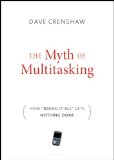 Earlier this year I interviewed Dave Crenshaw, author of The Myth of Multitasking, for my People and Projects Podcast. Dave talked about how we actually switchtask rather than multitask, adding stress and wasted time rather than efficiency when juggling multiple creative tasks. Earlier this year I interviewed Dave Crenshaw, author of The Myth of Multitasking, for my People and Projects Podcast. Dave talked about how we actually switchtask rather than multitask, adding stress and wasted time rather than efficiency when juggling multiple creative tasks.A new study recently released from Stanford confirms Dave's point. According to Professor Clifford Nass, high multitaskers are "suckers for irrelevancy", easily distracted by the noise that bombards us all every day. Want to get more done today? Work on focusing on one thing and get it done. And here's an idea! Check out the video below (but don't check e-mail while doing so)! Labels: e-mail, Information Technology, multitasking, podcast, time management
| |
Get Some Time Back in Your DayTwo of my favorite productivity and time management experts are hosting free learning experiences this week.Jason Womack: Goal Setting, this Friday 5/22, from 10:15am-10:45am Central. Click here for details on this free session. NOTE: Jason was a recent guest on my People and Projects Podcast. Click here to listen to the interview. Dave Crenshaw: Author of The Myth of Multitasking, this Friday 5/22, from 4:00pm-5:00pm Central. Click here to register for the free session. NOTE: Dave was my guest on the People and Projects Podcast back in February. Click here to listen to the interview. Enjoy! Labels: learning, podcast, time management
| |
Distraction Turns To TragedyMotorcyclist Fatally Struck by Car; Cops Say Other Driver Painting NailsThat was the headline in our local paper Sunday morning after a tragic accident the day before. The outrage continues to pour in, especially when it appears the nail-painting driver will only be charged with "failure to reduce speed to avoid an accident." My guess is there will be additional fines and litigation against the offending driver. Yet I suppose the most painful sentence for her will be living with the result of her lack of attention. One comment on a discussion board mentioned the driver is a nurse: someone who helps save lives. In a split second, for no good reason, she ended one. The discussion boards on local news sites are filled with "lock her up for life!" sort of judgments. My first reaction to the tragedy was similar: "What a loser! Painting her nails?" And yet I couldn't help but be reminded of one of Jesus' comments about someone who had obviously made a mistake as well: "If any one of you is without sin, let him be the first to throw a stone at her." How often will I text someone (while I'm driving) that I'm running a couple minutes late? Or scroll through a list of names to make a call? Or twirl the selector on my iPod to find the podcast I want to listen to? Or eat? Or review some notes before a meeting? Or shave? Or [fill in the blank]? The answer: too often. I've posted about attention and distraction a number of times and discussed it on my podcast with the author of The Myth of Multitasking. We are a culture of distracted multitaskers. The data clearly indicate it's not just the phone or iPod or nail polishing that impairs our driving. Reaching across the car to grab a bottle of water can make the difference between stopping now or a half-second too late. I understand that many of us fancy ourselves as great multitaskers, and certainly some seem better than others. But brain science increasingly makes it clear that we are fooling ourselves: "To put it bluntly, research shows that we can't multitask. We are biologically incapable of processing attention-rich inputs simultaneously," says Dr. John Medina, author of Brain Rules. He goes on: "Cell-phone talkers are a half-second slower to hit the brakes in emergencies, slower to return to normal speed after an emergency, and more wild in their 'following distance' behind the vehicle in front of them. In a half-second, a driver going 70 mph travels 51 feet. Given that 80% of crashes happen within three seconds of some kind of driver distraction, increasing your amount of task-switching increases your risk of an accident. More than 50% of the visual cues spotted by attentive drivers are missed by cell-phone talkers. Not surprisingly, they get in more wrecks than anyone except very drunk drivers." This isn't just an issue on the road. People are distracted by e-mail in meetings. Managers try to draft something on their computer while having a one-on-one with a staff member. Noises from a cubicle next door make it difficult to focus on your work. Thankfully the results are not typically as tragic as someone dying, but there is a toll nonetheless.Our local paper's editorial board had a good response this morning: "Don't _____ and Drive" That's good advice for the road. And it can be a good reminder for us all to manage our distractions more aggressively as we go through our day today. P.S. As I was finishing this post up this morning, my 12-year old son wanted to talk. I found myself bouncing between the conversation and this post. How ironic. I had to turn away from the keyboard and focus on him. Otherwise the likelihood of him feeling I wasn't listening (and a typo showing up in this post) would have dramatically risen. Here's to less distractions in your day today! Labels: denial, mistakes, multitasking, podcast, reality, time management
| |
Brain Rules MindmapIf you've participated in one of my project management workshops you've likely heard me refer to mindmapping. It's a great technique for personal and team brainstorming.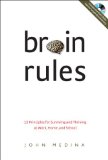 You may also have heard me refer to one of my favorite books from last year: Brain Rules: 12 Principles for Surviving and Thriving at Work, Home, and School, by John Medina. A recent podcast episode talks about the book and a few of the concepts. You may also have heard me refer to one of my favorite books from last year: Brain Rules: 12 Principles for Surviving and Thriving at Work, Home, and School, by John Medina. A recent podcast episode talks about the book and a few of the concepts.Well, here's a site that combines both: a mindmap of the Brain Rules! Enjoy! Click here to get your copy of Brain Rules. You'll love it! Labels: Books I Love, mindmaps, podcast
| |
Great Customer Service Trumps Technology NightmareHere's the setting: I'm interviewing Dr. Kenneth W. Thomas for my podcast yesterday. Ken is one of the most influential researchers in worker empowerment and conflict management, with his Thomas-Kilmann Conflict Mode Instrument (TKI) having sold over 6 million copies.We're having a great interview. He's into it, I'm enjoying it. His PR guy is on the line, very happily quiet. The marketing rep for a publisher is listening in, contentedly. It's a podcaster's dream. The interview finishes and I hit the "Stop" recording button on the software which has captured every word of this interview over Skype. And my computer locks up. 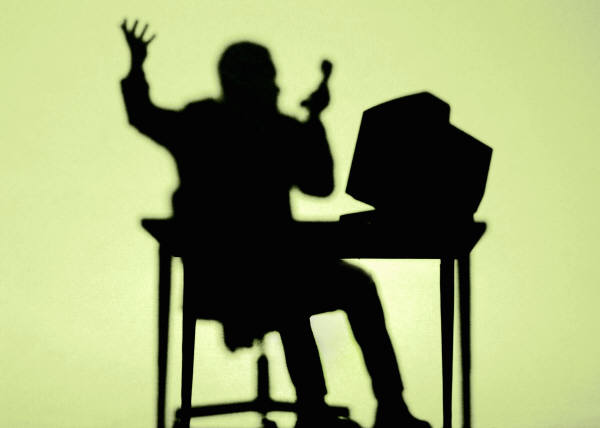 What is going on? I can't talk to them. My mouse won't even move. The computer is frozen. I don't know if the interview is saved. I am freaking out. What is going on? I can't talk to them. My mouse won't even move. The computer is frozen. I don't know if the interview is saved. I am freaking out.I quick grab a land line and call the conference line to let them know I wasn't rudely dishing them now that I got the interview! I mention the problem and that we may have to re-record. Everyone is gracious and willing but I am ticked. I decide to walk upstairs from my recording studio/office to get a cup of coffee, take a deep breath or two, and pray with my wife that the recording was salvageable. I go back downstairs and stretch every geek gene and neuron to recover the temp file that I see but cannot listen to. Sigh. I contact the provider of the software (CallGraph) and express my displeasure. Realizing they are in India I didn't expect a response, but got one in less than an hour. I tried a couple recommended steps without success and decided to just send them the file with SendThisFile.com. As I dozed off last night I couldn't help but admit this was just another technology nightmare. And it had to happen on this interview... I checked e-mail first thing this morning and saw an incredible message in my inbox. The subject read "Recovered file." As it turns out, Rajiv from CallGraph worked his magic and recovered everything except the last second or two. Unbelievable. Turns out prayer still works. :) And it also showed incredible customer service from a little known company that offers free Skype recording without time limits. There are settings, I've learned from Rajiv, to avoid the panic that I experienced. 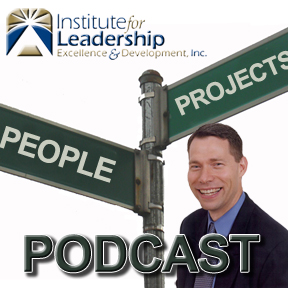 It is with confidence and appreciation that I recommend CallGraph (www.callgraph.biz) to my customers and colleagues who want a tool to record Skype conversations. It is with confidence and appreciation that I recommend CallGraph (www.callgraph.biz) to my customers and colleagues who want a tool to record Skype conversations.Andy Kaufman Host of the People and Projects Podcast Labels: customer service, podcast
| |
Podcasts: Training You Can't Afford (To Miss!) Our latest newsletter went out today on the topic of podcasts. If you haven't received yours, I invite you to check it out online. Our latest newsletter went out today on the topic of podcasts. If you haven't received yours, I invite you to check it out online.For those of you who regularly take advantage of podcasts, which are your favorites? Add a comment to this post to share with others. For those of you who haven't tried podcasts yet, what concerns do you have? What has kept you from taking the next step? I'd love to hear from you. Labels: e-learning, Information Technology, podcast
| |
People and Projects Podcast now on iTunes Just a quick note to announce our People and Projects Podcast is now available on iTunes. Click here to listen or subscribe! Just a quick note to announce our People and Projects Podcast is now available on iTunes. Click here to listen or subscribe!You are also invited to visit the People and Projects Podcast home page. Thanks! Labels: e-learning, leadership, podcast, project management |
|
|

